Come join us now, and enjoy playing your beloved music and browse through great scores of every level and styles!
Can’t find the songbook you’re looking for? Please, email us at: sheetmusiclibrarypdf@gmail.com We’d like to help you!
Table of Contents
What is a Jazz Standard?
A jazz standard is a musical theme that has acquired a certain notoriety in the jazz genre, which is known by many musicians and which has been the subject of numerous versions, interpretations and improvisations, and which is frequently used in jam sessions and performances.
There are standards from all eras of jazz, such as ‘When the Saints Go Marching In’, ‘I Got Rhythm’ or ‘How High the Moon’, ‘Take the ‘A’ Train’ to cite examples of the hot, swing and bop.
Many of the best-known standards were composed for films, or come from the so-called Great American Songbook, and have been incorporated into the genre, such as, for example, ‘Summertime’, by George Gershwin, while, for example, ”Round Midnight’, by Thelonious Monk, has been covered by, among others, Cootie Williams, Dizzy Gillespie, Art Pepper, and Miles Davis.
Best Sheet Music download from our Library.
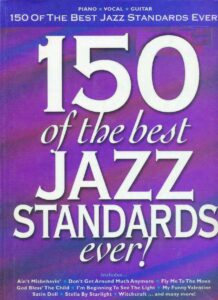
The most recorded standard composed by a jazz musician, and one of the most covered songs of all time, is Duke Ellington’s and Juan Tizol’s “Caravan” with over 500 uses.
Originally, the most recorded jazz standard was W. C. Handy’s “St. Louis Blues” for over 20 years from the 1930s onward, after which Hoagy Carmichael’s “Stardust” replaced it. Following this, the place was held by “Body and Soul” by Johnny Green.
Please, subscribe to our Library.
If you are already a subscriber, please, check our NEW SCORES’ page every month for new sheet music. THANK YOU!
Before 1920
At the beginning of the 20th century, jazz was still considered dance music. The first Dixieland groups remained influenced by this image: King Oliver and his Creole Jazz Band, the New Orleans Rhythm Kings and many other groups included Tin Pan Alley in their repertoires, and record companies sometimes dictated the list of titles that must be recorded by their artists.
Certain imposed songs have thus become standards, such as Darktown Strutters’ Ball or (Back Home Again in) Indiana, recorded by the Original Dixieland Jass Band at Columbia Records in 1917.
Also, among the standards of this era are the songs After You’ve Gone (Turner Layton and Henry Creamer, 1918) and Some of These Days (Sophie Tucker, 1910).
The 1920s
The Jazz Age began in the United States in the 1920s. Jazz became popular there, even though the older generation considered this music immoral and endangering their cultural values.
The first artist who allowed himself to freely choose his titles was Louis Armstrong, who popularized many standards during the years 1920 to 19301. The popular tunes of the 1920s were songs like Sweet Georgia Brown, Dinah or Bye Bye Blackbird.
Some compositions from this era written by jazz musicians have become standards such as Honeysuckle Rose (1928) and Ain’t Misbehavin’ (1929) by Fats Waller. The song Stardust by Hoagy Carmichael and Mitchell Parish is the most recorded jazz standard of the 1920s. Others are written by Broadway composers such as The Man I Love by George and Ira Gershwin (1924), Blue Skies by Irving Berlin (1927), or What Is This Thing Called Love? by Cole Porter (1927).
However, it was not until the 1930s that jazz musicians became comfortable with the complex melodies and sophisticated harmonic grids of Broadway tunes, and used them regularly in their repertoires.
The 1930s
Broadway contributed some of the most popular standards of the 1930s, including the famous Summertime from the comedy Porgy and Bess by George and Ira Gershwin (1935), My Funny Valentine by Richard Rodgers and Lorenz Hart (1937), All the Things You Are by Jerome Kern and Oscar Hammerstein II (1939), and Body and Soul by Johnny Green (1930). These standards are among the most recorded.
The 1930s saw swing establish itself in American music. Duke Ellington and his musicians composed many themes which would become jazz standards: It Don’t Mean a Thing (If It Ain’t Got That Swing) (1932), Sophisticated Lady (1933), Caravan (1936) among the most famous.

The swing era (1935–1946) is that of the greatest big bands, such as those of Benny Goodman and Count Basie, who also participated in the repertoire of jazz standards.
The 1940s
New themes became popular, such as Cotton Tail by Duke Ellington (1940) or Take the ‘A’ Train by Billy Strayhorn (1941). The Second World War was a difficult time for big bands, and small groups developed.
The arrival of bebop brought out a new audience sensitive to sophisticated harmonies, fast tempos, and the virtuosity of the musicians. Their repertoires largely use the standards of the 1930s, but their compositions will also enter the list of standards: Salt Peanuts (1941) and A Night in Tunisia (1942) by Dizzy Gillespie, Anthropology (1946), Yardbird Suite (en) ( 1946), Scrapple from the Apple (1947) by Charlie Parker, or ‘Round Midnight (1944) by Thelonious Monk.
The 1950s and beyond
Some modal jazz recordings became popular in the late 1950s, such as the albums Kind of Blue by Miles Davis in 1959 with the compositions All Blues and So What, Impressions (en) by John Coltrane in 1963, or Maiden Voyage by Herbie Hancock in 1965.
In the mid-1960s, Miles Davis’ second major quintet with Wayne Shorter and Herbie Hancock recorded a series of albums which contained standards such as Footprints (Wayne Shorter, 1966) and Freedom Jazz Dance (Eddie Harris, 1966).
At the end of the 1950s, bossa nova appeared in Brazil, a mixture of samba and jazz, made popular by João Gilberto, Antônio Carlos Jobim and Luiz Bonfá. Gilberto and Stan Getz launched this trend in the United States in 1964 with the famous Getz/Gilberto album. Among the standards of the genre are compositions by Bonfá (Manhã de Carnaval, 1959), Marcos Valle (Summer Samba, 1966), and numerous songs by Jobim such as Desafinado (1959), The Girl from Ipanema (1962), Corcovado (1962).
In the mid-1970s, jazz fusion appeared, which was a mixture of jazz, funk and rock. Joe Zawinul with Weather Report, Chick Corea with Return to Forever, Herbie Hancock with The Headhunters, or John McLaughlin’s Mahavishnu Orchestra considerably broaden the jazz audience, and some of their successes have become standards: Spain (en) by Chick Corea (1971), Chameleon by Hancock (1973), and Birdland by Joe Zawinul (1977).

Jazz standards
Musical compositions that have become jazz standards.
Irving Berlin – Alexander’s Ragtime Band [1911]
“Alexander’s Ragtime Band” is a Tin Pan Alley song by American composer Irving Berlin released in 1911 and is often inaccurately cited as his first global hit. Although not a traditional ragtime song, Berlin’s jaunty melody nonetheless “sold a million copies of sheet music in 1911, then another million in 1912, and continued to sell for years afterward.
It was the number one song from October 1911 through January 1912.” The song might be regarded as a narrative sequel to “Alexander and His Clarinet”, which Berlin wrote with Ted Snyder in 1910. The earlier song is mostly concerned with a reconciliation between an African-American musician named Alexander Adams and his flame Eliza Johnson, but also highlights Alexander’s innovative musical style.
Berlin’s “Alexander’s Ragtime Band” was introduced to the American public by vaudeville comedienne Emma Carus, “one of the great stars of the period.” A popular singer in the 1907 Ziegfeld Follies and Broadway features, Carus was a famous contralto of the vaudeville era, renowned for her “low bass notes and high lung power.”
Carus’ brassy performance of the song at the American Music Hall in Chicago on April 18, 1911, proved to be well-received, and she toured other metropolises such as Detroit and New York City with acclaimed performances that featured the catchy song. The song as comically recorded by American singing duo Arthur Collins and Byron G. Harlan became the number one hit of 1911.
Nearly two decades later, jazz singer Bessie Smith recorded a 1927 cover, which became one of the hit songs of that year. The song’s popularity re-surged in the 1930s with the release of a 1934 close harmony cover by the Boswell Sisters, and a 1938 musical film of the same name starring Tyrone Power and Alice Faye. The song was covered by a variety of artists such as Al Jolson, Billy Murray, Louis Armstrong, Bing Crosby, and others. Within fifty years of its release, the song had at least a dozen hit covers.
Etta James – Stormy Weather
From the album is At Last.
Search in our Library by author, or song name.
| Artist or Composer / Score name | Cover | List of Contents |
|---|---|---|
| Aebersold, Jamey Jazz Play Along Book + Audio Mp3 – Vol 95- 500 miles high | Jazz Play Along Vol 095 – [500 Miles High] | |
| Aebersold, Jamey Jazz Play Along Book + Audio Mp3 – Vol 96-Latin Quarter | Jazz Play Along Vol 096 – [Latin Quarter] | |
| Aebersold, Jamey Jazz Play Along Book + Audio Mp3 – Vol 97-Standards with strings | Jazz Play Along Vol 097 – [Standards With Strings] | |
| Aebersold, Jamey Jazz Play Along Book + Audio Mp3 – Vol 99 Tadd Dameron | Jazz Play Along Vol 099 – [Tadd Dameron] | |
| Aerith’s Theme – F.F. Vii エアリスのテーマ (Musescore File).mscz | ||
| Aerosmith – Amazing | ||
| Aerosmith – Angel | ||
| Aerosmith – Big Ones Piano Vocal Guitar chords |
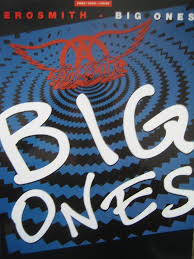 | Aerosmith – Big Ones Piano Vocal Guitar chords |
| Aerosmith – Crazy | ||
| Aerosmith – Dream On | ||
| Aerosmith – I Dont Want To Miss A Thing | ||
| Aerosmith 1973-1979 – Guitar Play Along with MP3 audio Guitar Signature Licks with Tablature |
 | Aerosmith 1973-1979 Signature Licks |
| Aerosmith Greatest Hits (Guitar) with Tablature |
 | aerosmith greatist hist guitar |
| Aerosmith Nine Lives Original Songbook Guitar Tabs |
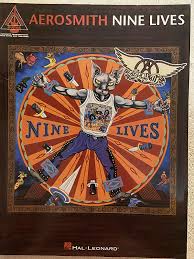 |
 |
| Aesthetics Of Music Musicological Perspectives by Stephen Downes(Book) |
 | |
| Affections touching across time (Inuyasha OST) Kaoru Wada | ||
| Afi – Love Like Winter | ||
| Afi – Miss Murder | ||
| AFI’s Top 25 Film Scores Songbook |
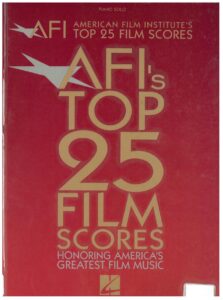 | AFI’s Top 25 Film Scores Songbook |
| Africa – Toto.mscz | ||
| Africa And The Blues (Book) |
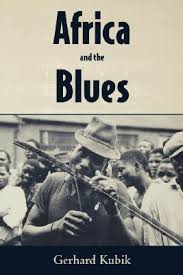 | |
| Afro Cuban Keyboard Grooves by Manny Patiño and Jorge Moreno |
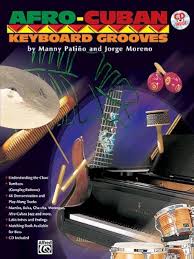 | Afro Cuban Keyboard Grooves by Manny Patiño and Jorge Moreno |
| Afroman – Because I Got High | ||
| After Hours for PIANO DUET by Pam Wedgwood |
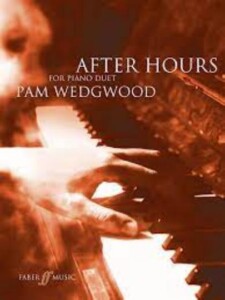 | After Hours for PIANO DUET by Pam Wedgwood |
| After Hours For Solo Piano. Book 3 (Pam Wedgwood) |
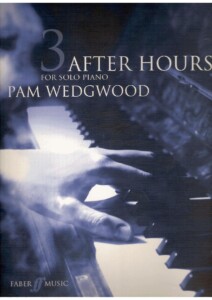 | After Hours For Solo Piano. Book 3 (Pam Wedgwood) |
| After Hours for Trumpet and Piano by Pam Wedgwood |
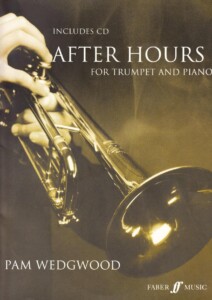 | After Hours for Trumpet and Piano by Pam Wedgwood |
| After You’ve Gone Turner Layton And Henry Creamer 1918 Jazz Standard (Vintage sheet music) |
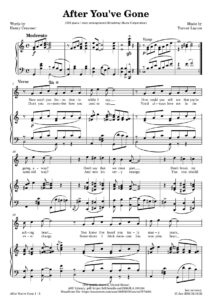 | |
| Again, as before, alone (P. I. Tchaikovsky) | ||
| Age of Empires 2 – Main theme | Age of Empires 2 – Main theme | |
| Agnes Obel Broken Sleep From Myopia | Agnes Obel Broken Sleep From Myopia | |
| Agnes Obel Chord Left |
 | |
| Agnes Obel Fuel To Fire |
 | |
| Agnes Obel Island Of Doom From Myopia | Agnes Obel Island Of Doom From Myopia | |
| Agnes Obel Pass Them By |
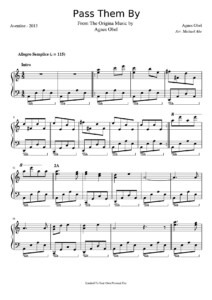 | |
| Agnes Obel – Riverside Piano |
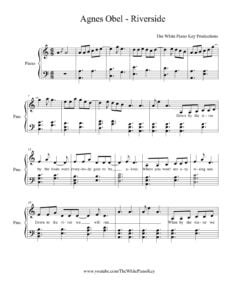 | |
| Agnes Obel – September Song |
 | |
| Agnes Obel – Tokka |
 | |
| Agnes Obel Citizen of Glass Songbook (piano solo) |
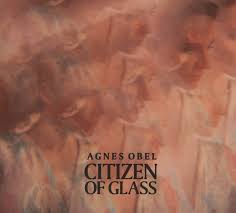 | Agnes Obel Citizen Of Glass |
| Agnes Obel Falling Catching |
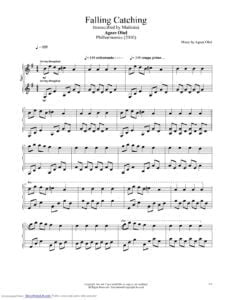 | |
| Agnes Obel Falling, Catching |
 | |
| Agnes Obel Familiar |
 | |
| Agnes Obel Fuel To Fire |
 | |
| Agnes Obel It’s Happening Again |
 | |
| Agnes Obel Just So |
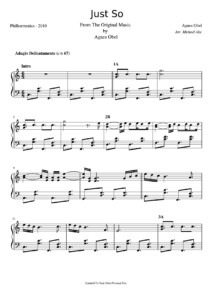 | |
| Agnes Obel Mary |
 | |
| Agnes Obel Riverside |
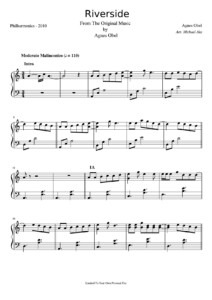 | |
| Agnes Obel September Song |
 | |
| Agnes Obel Smoke And Mirrors |
 | |
| Agnes Obel The Curse |
 | |
| Agnes Obel Tokka |
 | |
| Agnes Obel Words Are Dead |
 | |
| Aguas De Março Jazz Piano Score Jobim |
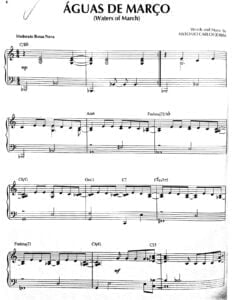 | |
| Agustin Carlevaro Album Para Guitarra Album For Guitar |
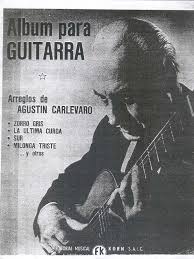 | Agustin Carlevaro Album Para Guitarra Album For Guitar |
| Aha – Take On Me |
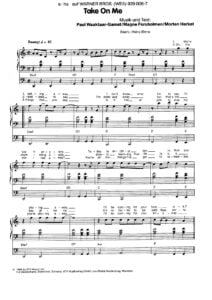 | |
| Ahead On Our Way Ff Vii (Musescore File).mscz | ||
| Ahmad Jamal Poinciana Full score (Song of the Tree) | Ahmad Jamal Poinciana Full score (Song of the Tree) | |
| Ahmad Jamal The Ahmad Jamal Collection (Artist Transcriptions) |
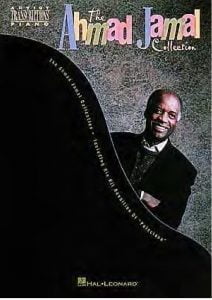 |
Ahmad Jamal The Ahmad Jamal Collection Artist Piano Transcriptions contents 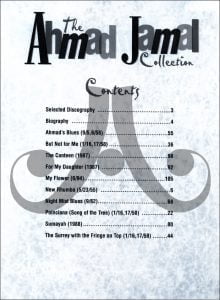 |
| Ahmad Jamal Feeling Good Transcription | Ahmad Jamal Feeling Good Transcription | |
| Ahmad Jamal I Love Music (From The Awakening) | Ahmad Jamal I Love Music (From The Awakening) | |
| Ahmad Jamal Wave from the album The Awakening |
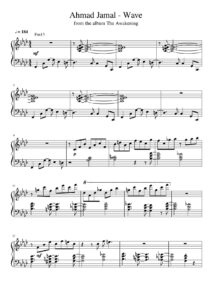 | |
| Ai Mei – Rainie Yang | ||
| Aimee Mann – Wise Up | ||
| Ain’t Misbehavin’ Fats Waller As Played By Joe Pass (Musescore File).mscz | ||
| Ainsi soit je (Mylène Farmer) | ||
| Air on the G string, from BWV 1068 (10 string, Yepes tuning).mscz | ||
| Air Supply Greatest Hits |
 | AIR SUPPLY GREATEST |
| Airegin by Soony Rollins – Jazz Play Along with sheet music |
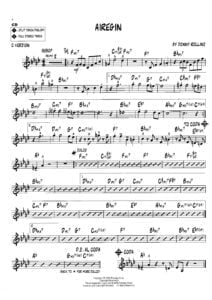 | Airegin |
| Akira Ifukube – Sonata for Violin and Piano I – Allegro |
 | |
| Akira Ifukube End Titles Godzilla Vs Destoroyah |
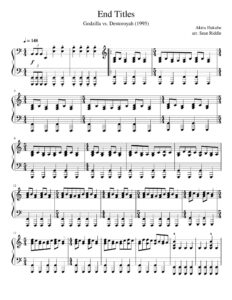 | |
| Akira Ifukube Mesa March Godzilla |
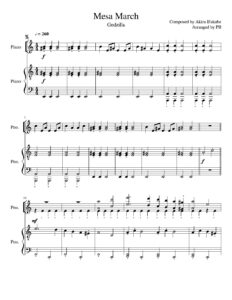 | |
| Akira Yamaoka Silent Hill 2 Promise (Reprise) |
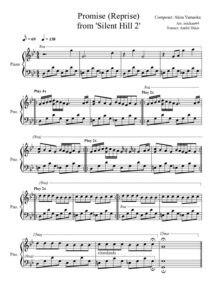 | |
| Akira Yamaoka, Silent Hill Room Of Angel (Piano) | Akira Yamaoka, Silent Hill Room Of Angel (Piano) | |
| Aknin, Laurent Le Choix Du Coeur Easy Piano Solo (du film The Student and Mister Henri (L’Étudiante et Monsieur Henri) | Aknin-Laurent-Le-Choix-Du-Coeur-Easy-Piano-Solo | |
| Al Di Meola – Guitar Technique SongBook with Tablature |
 | Al Di Meola – Guitar technique SongBook |
| Al Di Meola A Guide To Guitar Chords Scales And Arpeggios Master Classes With Bob Aslanian |
 | Al Di Meola A Guide To Guitar Chords Scales And Arpeggios Master Classes With Bob Aslanian |
| Al Di Meola Collection Music Words Pictures Artist Transcriptions Guitar |
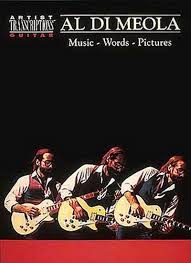 | Al Di Meola Collection Music Words Pictures Artist Transcriptions Guitar — al di meola collection songbook |
| Al Di Meola Enigma Of Desire (Guitar) |
 | |
| Al Di Meola Guitar School Elegant Gypsy Songbook with Tablature |
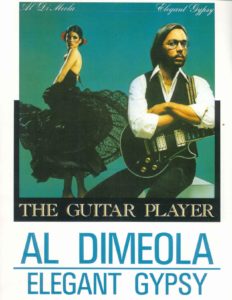 | Al Di Meola Guitar School Elegant Gypsy Songbook |
| Al Di Meola Guitar Tabs Songbook Electric Rendezvous |
 | Al Di Meola Guitar Tabs Songbook Electric Rendezvous |
| Al Di Meola Solace (Guitar) | Al Di Meola Solace (Guitar) | |
| Al Di Meola Solos by Dan Towey with Tablature |
 | Al Di Meola Solos by Dan Towey with Tablature — al di meola solos |
| Al Di Meola Super Guitarist Guitar Tabs Songbook |
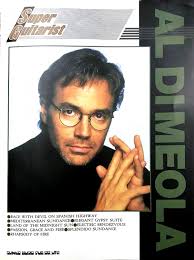 | Al Di Meola Super Guitarist Guitar Tabs Songbook |
| Al Di Meola When Youre Gone | Al Di Meola When Youre Gone | |
| Al Di Meola, John McLaughlin and Paco De Lucia – Friday Night in San Francisco (Guitar with Chords) |
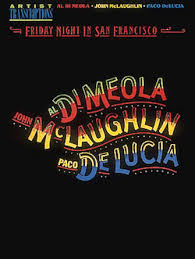 | Al Di Meola, John McLaughlin and Paco De Lucia – Friday Night in San Francisco Contents |
| Al di Meola’s Picking Techniques by Al di Meola |
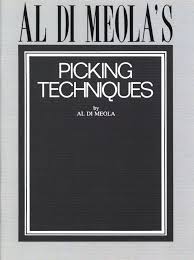 | |
| Al Green – Let´s Stay Together Melody And Guitar Chords |
 | |
| Al Green Let’s Stay Together |
 | |
| Al Green The Best Of Piano Vocal Chords |
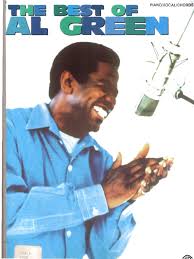 | Al Green The Best Of Piano Vocal Chords |
| Al Jarreau – Breakin’ Away |
 | |
| Al Jarreau Spain (I can recall) Piano Vocal Guitar Chords |
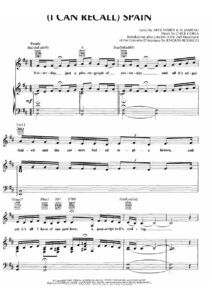 | |
| Al Jarreau The Best Of Al Jarreau Piano Vocal Guitar chords |
 | Al Jarreau The Best Of Book |
| Al Stewart – Time Passages |
 | |
| Al Stewart – Year Of The Cat |
 | |
| Al Stewart Greatest Songs Of Book |
 | AL STEWART SONGBOOK |
| Aladdin – A Whole New World – Alan Menken | Aladdin – A Whole New World – Alan Menken | |
| Aladdin – Arabian Nights (Musescore File).mscz | ||
| Ãlafur Arnalds – 3055 Eulogy For Evolution | Ãlafur Arnalds – 3055 Eulogy For Evolution | |
| Alain Barriere – Les Guinguettes |
 | |
| Alain Barrière – Emporte Moi (Y Volveré) |
 | |
| Alain Barriere – Tu T’en Vas |
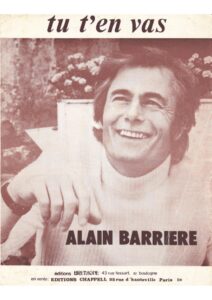 | |
| Alain Chamfort Songbook Book |
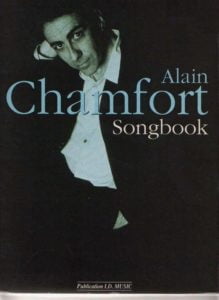 | ALAIN CHAMFORT SONGBOOK |
| Alain Souchon Au Ras Des Paquerettes Piano Vocal Guitar TAB |
 | Alain Souchon Au Ras Des Paquerettes Piano Vocal Guitar TAB |
| Alain Souchon Ecoutez d’où Ma Peine Vient Piano Vocal Guitar chords |
 | Alain Souchon Ecoutez d’où Ma Peine Vient Piano Vocal Guitar chords |
| Alain Souchon les plus grands succès de (partitions, sheet music) Piano Vocal |
 | Alain Souchon les plus grands succès de (partitions, sheet music) Piano Vocal |
| Alan Belkin – Una Guía Práctica de Composición Musical (Spanish) | Book Theory | |
| Alan Berg Sonate Für Klavier, Op. 1 (Piano) |
 | |
| Alan Jackson – Between the Devil and Me |
 | |
| Alan Jackson – Buicks to the Moon |
 | |
| Alan Jackson – I’ll Go On Loving You |
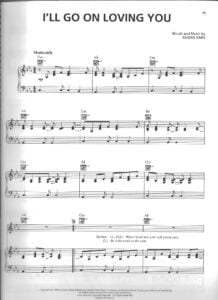 | |
| Alan Jackson – It’s Five Oclock Somewhere |
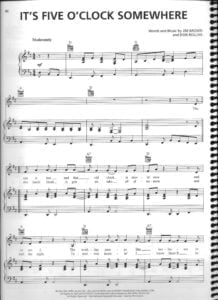 | |
| Alan Jackson – Little Bitty |
 | |
| Alan Jackson – Once In A Lifetime Love |
 | |
| Alan Jackson – Remember When |
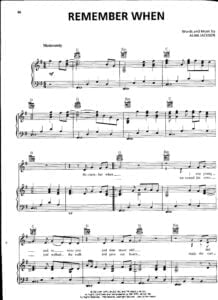 | |
| Alan Jackson – That’d Be Alright |
 | |
| Alan Jackson – There Goes |
 | |
| Alan Jackson – Where I Come From |
 | |
| Alan Jackson Precious Memories Piano Vocal Guitar |
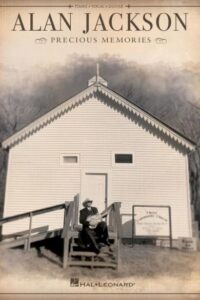 | Alan Jackson Precious Memories Piano Vocal Guitar |
| Alan Jackson Remember When Piano Solo |
 | |
| Alan Lomax – The Penguin Book Of American Folk Songs (GUITAR) |
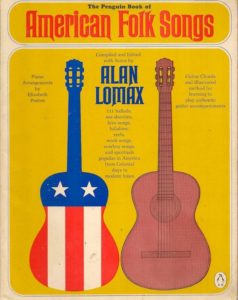 | Alan Lomax – The Penguin Book Of American Folk Songs GUITAR) |
| Alan Menken – A Christmas Carol A Place Called Home |
 | |
| Alan Menken – Beauty and the Beast (easy piano) Complete score arr. piano & guitar chords |
 | Alan Menken – Beauty and the Beast (easy piano) |
| Alan Menken – Little Shop Of Horrors |
 | Alan Menken – Little Shop Of Horrors |
| Alan Menken – Songbook |
 | Alan Menken songbook sheet music |
| Alan Menken – Tangled (Disney) Rapunzel songbook |
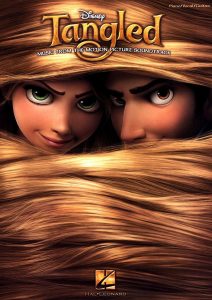 | Tangled |
| Alan Menken A Christmas Carol (The Musical) piano conductor score |
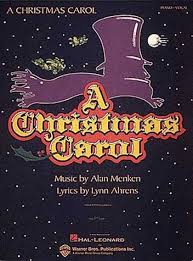 | Alan Menken A Christmas Carol (The Musical) piano conductor score |
| Alan Menken Aladdin (songbook) |
 | Alan Menken Aladdin |
| Alan Menken Aladdin – Broadway Musical Songbook |
 | Aladdin – Broadway Musical Songbook – Alan Menken |
| Alan Menken Hercules Disney Songbook Complete |
 | Hercules Disney Songbook Complete |
| Alan Menken Hunchback Of Notre Dame, The Musical Vocal Selections Lyrics Stephen Schwartz |
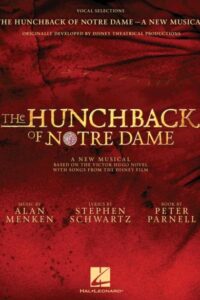 | Alan Menken Hunchback Of Notre Dame, The Musical Vocal Selections Lyrics Stephen Schwartz |
| Alan Menken I see the light (Tangled-Disney) | Alan Menken I see the light (Tangled-Disney) | |
| Alan Menken My Christmas Tree from Home Alone 2 Lost In New York |
 | |
| Alan Menken The Hunchback Of Notre Dame (Disney) |
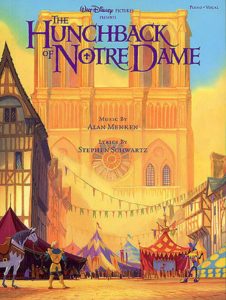 | Alan Menken The Hunchback Of Notre Dame (Disney) |
| Alan Menken The Little Mermaid Piano Vocal Score (The Musical) | Alan Menken The Little Mermaid Piano Vocal Score (The Musical) | |
| Alan Menken Whole New World Sheet Music, A |
 | |
| Alan Parsons – Eye in the Sky |
 | |
| Alan Parsons Project – Don’t Answer Me |
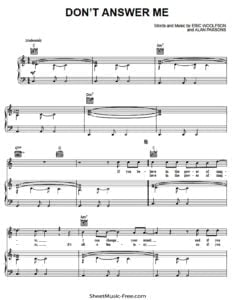 | |
| Alan Parsons Project – Eye In The Sky |
 | |
| Alan Parsons Project – Time |
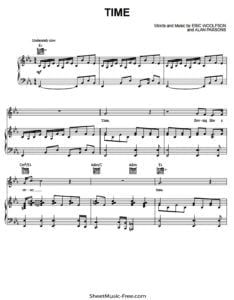 | |
| Alan Parsons Project – Eve (Piano, Vocal, Guitar) Songbook |
 | Alan Parsons Project – Eve (Piano, Vocal, Guitar) Songbook |
| Alan Parsons Project – Eye In the Sky (Piano, Vocal, Guitar Songbook) |
 | Alan Parsons Project – Eye In the Sky (Piano, Vocal, Guitar Songbook) |
| Alan Parsons Project – I Robot (Piano, Vocal, Guitar) Songbook |
 | Alan Parsons Project – I Robot (Piano, Vocal, Guitar) Songbook |
| Alan Parsons Project – The Essential |
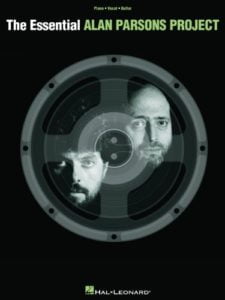 | Alan Parsons Project |
| Alan Parsons Project Gaudí Piano Vocal Guitar chords |
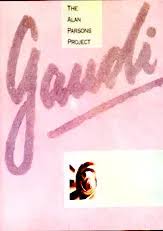 | Alan Parsons Project Gaudí Piano Vocal Guitar chords |
| Alan Parsons Project The Alan – Prime Time |
 | Alan Parsons Project The Alan – Prime Time |
| Alan Parsons Project The Alan – Tales Of Mystery And Imagination Edgar Allan Poe |
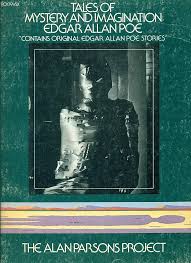 | Alan Parsons Project The Alan – Tales Of Mystery And Imagination Edgar Allan Poe |
| Alan Raph Sing It First Trombone |
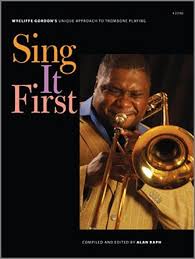 | |
| Alan Silvestri – Avengers Infinity War Medley – Piano Solo | Alan Silvestri – Avengers Infinity War Medley – Piano Solo | |
| Alan Silvestri – Contact Main Theme | ||
| Alan Silvestri Cast Away Main Theme – Naufrago (Piano solo) | Alan Silvestri Cast Away Main Theme – Naufrago (Piano solo) | |
| Alan Silvestri Contact Main Thitle Piano Solo |
 |
